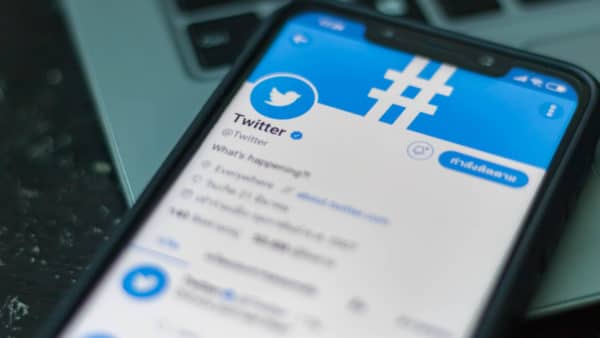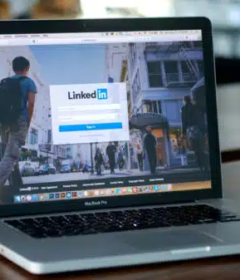How brands and agencies are reacting to Elon Musk’s radical changes at Twitter

As brand safety risks increase, some advertisers are waiting to see whether Twitter will be a respected platform or a free-for-all hellscape.
It seems like he’s getting what he wanted.
A brand safety risk
Not all agencies and brands are on board with Musk’s new outlook.
Due to trust and safety concerns under Musk’s leadership, some agencies are advising that their clients suspend their ads on Twitter, at least for now.
One of those advertising companies is IPG’s Mediabrands.
The automaker, and Tesla competitor GM temporarily paused their ads, but stated that its decision was consistent with its “normal course of business” to “temporarily pause our paid advertising.” The automaker added, it is not abandoning Twitter entirely, as its “customer care interactions on Twitter will continue.”
Musk’s words state that he’s committed to safety, posting recently, “Twitter’s commitment to brand safety is unchanged,” but his actions seem to say otherwise.
Some advertisers aren’t concerned, though, as 58% of the marketers we polled thought the change could be a good thing for brands, marketers, and users.
A chaotic and confused approach to free speech
Last week, Musk promoted a baseless conspiracy theory about the recent violent attack on Paul Pelosi. “There might be more to this story than meets the eye,” Musk said, in response to a tweet from Hillary Clinton. A few hours later the tweet was deleted.
Musk also said he disagrees with Twitter’s practice of permanent bans for those who repeatedly violate its rules, raising the possibility that a number of previously banned, controversial users could reemerge on the platform. Many of us will be watching to see if he lets former President Trump back on the platform in time for the U.S. midterm elections.
Musk has a history of outrageous behavior as we saw in 2018 when he called a British caver “Pedo guy” during the Thai boys’ soccer team rescue. The diver sued Musk for his comments and Musk later told a jury that his insult wasn’t meant to be taken literally.
Bloomberg points out that there are other examples of more concerning tweets directed toward Musk, such as ones from commentators in China lobbying to have their “Chinese state-affiliated media” label removed.
 100vw, 317px” data-lazy-src=”https://searchengineland.com/wp-content/seloads/2022/11/1x-1-2-317×600.jpg” /></figure>
<p>It’s also concerning that since Musk’s takeover, there has been a <a href=) noticeable uptick in racial and Nazi slurs on the platform.
noticeable uptick in racial and Nazi slurs on the platform.
“Musk’s Twitter takeover has shown us some unfortunate outcomes thus far, one of the clearest signals being the immediate increase in hate speech on the platform. A study from the School of Communication and Media at Montclair State University found that in the hours after Musk’s acquisition, Twitter became a more “vulgar and hostile” environment, with it experiencing an “immediate, visible, and measurable spike” in hate speech. Social media acts as a gathering space for billions, and it becoming more hostile will have real-world impacts. Words matter, they have power; there have been countless studies showing how hate speech directly correlates with a rise in hate crimes.”
Eric Yaverbaum, CEO of Ericho Communications
Musk has already walked back some of his “anything goes” proclamations, tweeting that Twitter “obviously cannot become a free-for-all hellscape, where anything can be said with no consequences.”
And yet with his mixed messages, the “free the bird” bell may not be able to be unrung; it’s clear that users see Musk’s ownership as permission to “unleash the racial slurs” as one Twitter user put it, says Yaverbaum.
Yaverbaum continued:
“Twitter’s actions (and resulting consequences) won’t stop at the public impact; it’s setting itself up for a serious internal crisis. The company is planning layoffs and is expecting employees to now work 12-hour shifts, seven days a week, and employees are unsurprisingly already resigning. Leaders must set the tone to ensure a healthy workplace environment. Here Musk is doing just the opposite. Outside of encouraging poor time management and uprooting the lives of those who currently work at Twitter, Musk’s actions aren’t painting him in the best light as a leader, especially to any future Twitter employees he looks to recruit. These actions send a clear message to current and prospective employees and can have lasting impacts on a company, even years down the line.”
The entire board fired
Immediately after his acquisition, Musk fired CEO Parag Agrawal. In addition, on Thursday Musk also fired CFO Ned Segal and policy head Vijaya Gadde. Musk also fired Sean Edgett, Twitter’s general counsel.
More executives call it quits
Sarah Personette, Twitter’s advertising liaison and chief commercial officer stepped down from her position on Tuesday. On her Twitter, she said “Hi folks, I wanted to share that I resigned on Friday from Twitter and my work access was officially cut off last night.”
She continued “It has been the greatest privilege to serve all of you as a leader and a partner. Many have heard me say this but the most important role I believe I played in the company was championing the requirements of brand safety.”
Chief People and Diversity Officer Dalana Brand announced on Tuesday in a LinkedIn post that she had resigned last week as well. General manager for core technologies Nick Caldwell confirmed his departure on Twitter, changing his profile bio to “former Twitter exec” by Monday night.
Chief marketing officer Leslie Berland, Twitter’s head of product Jay Sullivan, and its vice president of global sales, Jean-Philippe Maheu, have also left, a person with knowledge of the matter told Reuters. It was not immediately clear whether they quit or were asked to leave.
The new Twitter Blue
In response to Twitter’s blue checkmark, Musk tweeted “The current system of lords and peasants, with those who have the blue tick and those who don’t, is bullshit.”
Musk proposed charging users $20 per month to keep their blue check mark verification as well as access to other features. In response, writer Stephen King responded
Musk fired back, “We need to pay the bills somehow! Twitter cannot rely entirely on advertisers. How about $8?”
Shortly after, Musk announced “Power to the people! Blue for $8 a month.”
Joel M. Petlin, superintendent and Newsweek Opinion contributor responded
No kidding, Joel.
The Saudi’s investment
Last Friday, billionaire Saudi Prince Alwaleed bin Talal said he and his Kingdom Holding Company rolled over a combined $1.89 billion in existing Twitter shares, making them the company’s largest shareholder after Musk. The news raised concerns among some lawmakers, including Sen. Chris Murphy, a Democrat from Connecticut.
Murphy tweeted that he is requesting the Committee on Foreign Investment — which reviews acquisitions of U.S. businesses by foreign buyers — to investigate the national security implications of the kingdom’s investment in Twitter
“We should be concerned that the Saudis, who have a clear interest in repressing political speech and impacting U.S. politics, are now the second-largest owner of a major social media platform,” Murphy tweeted. “There is a clear national security issue at stake and CFIUS should do a review.”
Why we care
Musk’s radical changes and viewpoints could be scaring off brands and agencies, as none want to be associated with a platform that promotes hate speech, conspiracies, and an environment where employees are leaving in troves.
We are also playing the wait-and-see game. Yaverbaum added “Social media as a whole is already struggling. If Twitter continues down this path, it could easily be its undoing.”


